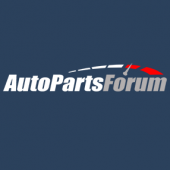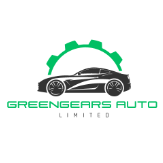-
Welcome to Auto Parts Forum
Whether you are a veteran automotive parts guru or just someone looking for some quick auto parts advice, register today and start a new topic in our forum. Registration is free and you can even sign up with social network platforms such as Facebook, X, and LinkedIn.
OEM vs. Aftermarket Parts for Your Car: How to Choose
-
Similar Content
-
- 0 replies
- 410 views
-
- 0 replies
- 251 views
-
Unlock Peak Vehicle Performance with Premium Auto Parts: Clifford Auto Parts Delivers Quality You Can Trust
- clifford auto parts
- carpart
- (and 3 more)
- 0 replies
- 487 views
-
- 0 replies
- 357 views
-
- 0 replies
- 795 views
-
-
Similar Topics
-
By Counterman
PRT announced the latest additions of new aftermarket products to its portfolio of complete strut assemblies and shock absorbers. PRT said the 18 products represent more than 10 million vehicles in new coverage.
The company added several significant models to its portfolio. These include the Toyota Yaris, Ford Escape and Volkswagen Touareg. PRT also introduced products for new applications like the 2023 Hyundai Kona. Pickup truck coverage includes the GMC Sierra and Honda Ridgeline.
Models Include Passenger Cars, SUVs and Trucks
The expanded coverage targets a wide range of popular vehicles. These include sedans, SUVs and pickup trucks.
link hidden, please login to view said the updates help meet ongoing demand in the market. New Aftermarket Products Now Available in the U.S.
“These continuous product launches aim to broaden our application range across the North American aftermarket,” said Bruno Bello, director of global marketing at PRT. “The new items are available in the U.S. and ready for shipment!”
In March, PRT announced the latest additions to its portfolio of complete strut assemblies and shock absorbers in the North American Aftermarket. The 27 new products represent more than seven million vehicles in new coverage.
The launches include models like the Chevrolet Malibu, Dodge Challenger and Suzuki SX4, in addition to brand new applications including the Chrysler Voyager and Pacifica 2023, as well as the Ford Transit 250 and 350 HD 2023, among others.
Contact PRT or Visit Online for Details
For more information, call 1-770-238-1611, visit
link hidden, please login to view, or follow @prtautoparts. The post
link hidden, please login to view appeared first on link hidden, please login to view.
link hidden, please login to view -
By Counterman
link hidden, please login to view is pleased to announce that Hamilton Discount Auto Parts ( link hidden, please login to view) joined as its newest shareholder. By joining APA, HDAP gains access to a suite of resources, strong supplier connections, and a community of like-minded independent distributors, elevating its ability to serve customers effectively. APA Welcomes New Shareholder HDAP, expanding its network. The Growth of HDAP
Khaled Abudagga founded HDAP in 2003. He started it as a single-location business in Hamilton, Ontario. Khaled, a former auto shop owner, transitioned into the parts-selling industry. His goal was to provide top-tier products and exceptional service. Over the years, HDAP grew and now operates 16 locations. Customers know the business for its reliability and dedication.
Why HDAP Joined APA
“HDAP joined APA because I was looking for a U.S. buying group that would provide more value for its shareholders,” said Khaled. “I saw APA and was impressed that it operated like a family business.”
Khaled Abudagga Joins the APA Board
In addition to joining APA, Abudagga now serves on the APA Board of Directors. His extensive experience in the automotive aftermarket adds value to the organization. His commitment to independent distributors strengthens the community.
APA Welcomes New Shareholder to Strengthen its Mission
“We are thrilled to welcome HDAP to the
link hidden, please login to view family,” said Steve Tucker, president of APA. “Their commitment to excellence and customer satisfaction aligns perfectly with our mission, and we look forward to a successful partnership.” The post
link hidden, please login to view appeared first on link hidden, please login to view.
link hidden, please login to view -
By Counterman
SmartParts has announced the launch of DR!VE+ in North America at the 2025 NEXUS Business Forum in Abu Dhabi. This marks a major step in its global expansion. The launch follows strong growth in 2024 for the exclusive global aftermarket brand for NEXUS members worldwide. The first phase of the North American aftermaket expansion will introduce a 13,700-part Chassis range, with additional product lines to follow. DR!VE+ will serve as the unified brand for NEXUS North America members. SmartParts also introduces a new DR!VE+ battery range, reinforcing its commitment to a comprehensive aftermarket offering.
NEXUS Accelerates North American Aftermarket Expansion
To capitalize on growing market opportunities, NEXUS said it decided 18 months ago to speed up the deployment of the DR!VE+ brand. The aging car parc and transformation of the aftermarket are driving demand. The first phase of the North American aftermarket expansion will focus on the Chassis range, offering 13,700 part numbers. A roadmap will introduce multiple additional product lines over the next 18 months.
“This joint initiative marks a key milestone in the history of NEXUS North America,” said Robert Roos, president of APSG and NEXUS North America.
2024 Growth and 2025 Plans for SmartParts
SmartParts welcomed over 20 new
link hidden, please login to viewmembers and increased revenue by 50% in 2024. This success expands its reach to more than 80 members and customers in 50 countries, the company said. SmartParts aims to further increase its turnover in 2025. The company added it will fast-track expansion into North America, India and Asia. New DR!VE+ Battery Range to Meet Market Demand
SmartParts is unveiling its all-new DR!VE+ battery range at the NEXUS Business Forum. The lineup targets both light vehicles and heavy-duty applications. It is segmented into four categories—DR!VE+ Platinum (AGM), DR!VE+ Performance (EFB), DR!VE+ Essential (SLI), and DR!VE+ Access (Commercial Vehicles only). This range includes 61 part numbers, covering 99% of market demand and catering to older vehicles, hybrid models and commercial applications.
Future Growth and Global Expansion
The
link hidden, please login to view portfolio expanded by more than 1,100 part numbers in 2024. This brings the total to over 11,000 part numbers. SmartParts will continue expanding the range in 2025. The company remains committed to strengthening its position as the global aftermarket brand exclusive to link hidden, please login to viewmembers. “2024 has been an exceptional year for SmartParts,” said Pascal Popis, CEO of SmartParts. “With sales more than doubling compared to last year, this growth reflects the strong commitment of NEXUS members, the power of the DR!VE+ brand and the dedication of our team.”
The post
link hidden, please login to view appeared first on link hidden, please login to view.
link hidden, please login to view -
By Counterman
link hidden, please login to view N.A announced the expansion of its aftermarket portfolio with 13 new belt drive SKUs that offer application coverage for over 5.2 million vehicles in operation (VIO). A news release from
link hidden, please login to view said the latest product expansion “brings innovative solutions designed to meet the evolving needs of modern vehicles and repair technicians. The upgraded components enhance efficiency, simplify installation and reduce inventory complexity for distributors and shops.” The company’s new product lineup features:
Three pulleys covering over 2.1 million VIO. Seven overrunning alternator decouplers (OAD) spanning over 860,000 VIO. Three belt tensioners covering over 2.2 million VIO, now featuring advanced engineering upgrades for improved performance and ease of use. “It is essential that shops have access to reliable, OE-equivalent aftermarket parts as vehicles become more advanced. With 11 of the 13 new SKUs being first-to-market and OE-engineered, we’re giving technicians access to solutions that weren’t previously available,” said Ana Maria Lopez, product application manager at Litens Aftermarket N.A. “This is about staying ahead of industry complexity and ensuring shops have the right parts when they need them.”
All new SKUs are available now through
link hidden, please login to view distribution network, with additional product expansions planned throughout 2025, the company said.
The post
link hidden, please login to view appeared first on link hidden, please login to view.
link hidden, please login to view -
-
By Counterman
link hidden, please login to viewannounced the acquisition of Kohl Auto Parts, a trusted name in McCook, Nebraska for decades. This move strengthens Arnold Motor Supply’s commitment to providing top-quality parts and service to automotive professionals and DIYers, the company said. A news release about the acquisition explained that Kohl Auto Parts has a rich history, originally founded as Sidles in the 1950s before becoming Mr. Automotive in the 1970s. Neal Kohl purchased the store in 1986, and his son, Barry Kohl, took ownership in 1992. Barry later rebranded the business as Kohl Auto Parts in 1999. Over the years, it has become a staple in the McCook community, known for its expertise and customer service.
“We’re honored to continue the legacy built by the Kohl family and to bring expanded products and support to the McCook area,” said Eric Johnson, president and managing partner at Arnold Motor Supply. “Customers can expect the same great service with even more resources at their fingertips.”
Arnold Motor Supply said the acquisition ensures a seamless transition, giving customers access to its extensive inventory, technical expertise and strong distribution network.
The post
link hidden, please login to view appeared first on link hidden, please login to view.
link hidden, please login to view
-





Recommended Posts
Join the conversation
You can post now and register later. If you have an account, sign in now to post with your account.
Note: Your post will require moderator approval before it will be visible.